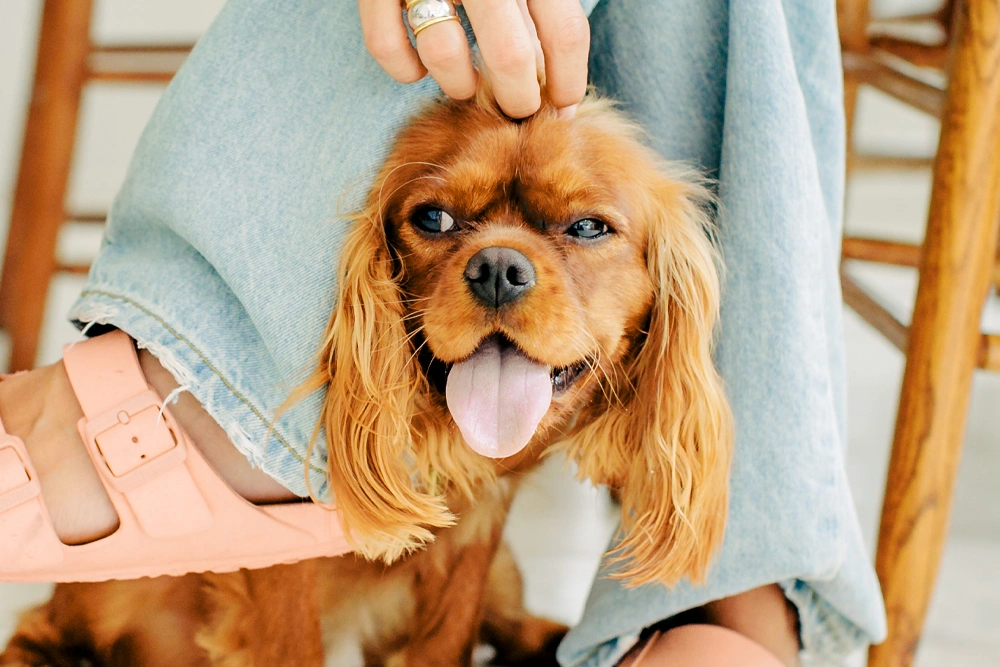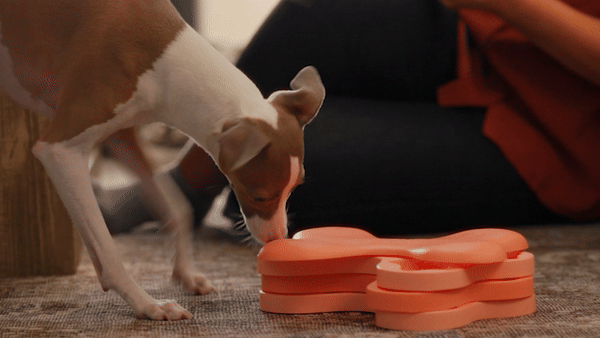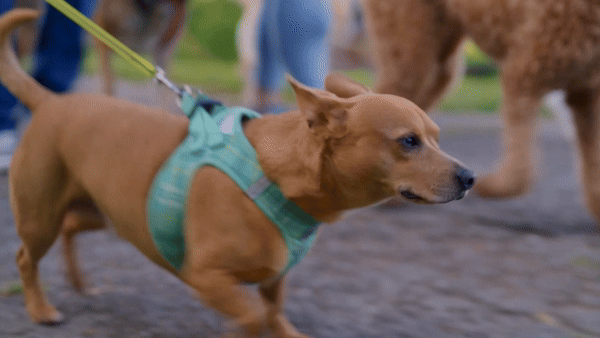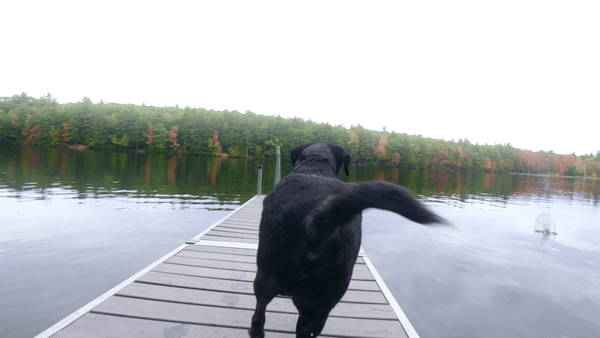Nom Nom Blog
What Your Breed Needs: Enrichment Strategies for Your Dog's Personality
From the energetic and playful Labrador Retriever to the dignified and loyal German Shepherd, it's widely believed that different dog breeds exhibit specific behaviors. These distinctions often stem from centuries of selective breeding for particular traits, such as herding, hunting, guarding, or companionship purposes.
Yet while breed-specific traits provide a general framework for understanding a dog's personality, it's essential to recognize that individual temperament is also shaped by environmental factors and upbringing. Early socialization, training, and positive reinforcement play crucial roles in molding a dog's behavior, and determining how they interact with the world around them.
So whether your pup is a full-blooded Beagle, or has a 10% makeup that compels them to relentlessly follow their nose (often straight into trouble or food), these enrichment activities will make the most of their natural instincts.
Herding Breeds
Breeds like Border Collies and Australian Shepherds often exhibit traits such as high energy levels, alertness, and a strong desire to perform tasks and please their owners. Providing them with physical exercise as well as mental stimulation is crucial to keeping them happy and healthy.
Enrichment Ideas for Herders
- Herding Activities: Now this is a no-brainer. Since herding is in their nature, either engage in activities that simulate herding, or enroll in actual herding classes (they exist!)
- Agility Training: Set up an agility course in your backyard or find a local agility club. Agility training challenges your dog to navigate through obstacles like tunnels, jumps, and weave poles.
- Treibball: Soccer ain't got nothing on treibball; a fantastic doggy sport where pups herd large exercise balls into a goal.
- Trick Training: Use positive reinforcement techniques to teach a variety of tricks like rolling over, playing dead, or fetching specific items.
- Interactive Toys: Invest in puzzle toys and interactive feeders that require your dog to work for their food and engage their problem-solving skills.
- Scent Work: Herding breeds have a keen sense of smell, so set up scent work activities where they have to find hidden treats or toys based on olfactory cues.
- Hiking or Trail Running: Take your dog on hikes or trail runs in nature where they can explore new scents and terrain.
- Group Playdates: Organize social activities with other dogs, especially those with similar energy levels and play styles.
Working Breeds
Dogs bred for work, such as the Siberian Husky or the Boxer, tend to be highly energetic, strong, and eager to engage in physical activities. They thrive on tasks that challenge their minds and bodies, making them excellent companions for active individuals or families.
Enrichment Ideas for Workers
- Daily Exercise Routine: Aim for at least 60 minutes of vigorous exercise each day, such as brisk walks, runs, or hikes.
- Fetch and Retrieval Games: Playing ball or frisbee is an excellent way to burn off excess energy and satisfy your dog's natural retrieval instincts.
- Scent Work: Working breeds enjoy using their noses to solve puzzles (bomb sniffing dogs fall under this group!)
- Obedience Training: Working breeds thrive on mental stimulation and enjoy learning new commands and tasks.
- Hiking or Trail Running: Let them explore new scents and terrain while enjoying the great outdoors.
- Swimming: This is a low-impact exercise that's easy on their joints.
- Job Simulation: Provide your dog with "jobs" or tasks to fulfill their need for purposeful activity. This could include carrying a backpack on walks, pulling a cart or sled, or participating in canine sports like dock diving or weight pulling.
- Interactive Toys and Puzzle Games: Hide treats inside puzzle toys or scatter them around the house for your dog to find.
Companion Breeds
Small breeds like the Cavalier King Charles Spaniel or the Maltese typically crave human companionship. They thrive in environments where they receive ample attention and affection, yet still benefit greatly from regular exercise and stimulation.
Enrichment Ideas for Companions
- Daily Walks: Even though companion breeds may not require as much exercise as other breeds, they still enjoy daily walks. Aim for at least 30 minutes each day.
- Playtime: Engage in interactive play sessions using toys like plush toys, balls, or ropes.
- Indoor Games: Teach your dog simple games that can be played indoors, such as "find the treat" or "hide and seek."
- Agility for Small Dogs: Set up a mini agility course in your backyard using low-height obstacles like tunnels, jumps, and weave poles.
- Obedience Training: Companion breeds are intelligent and eager to please, making them excellent candidates for command training.
- Doggy Daycare or Playdates: Socialization with other dogs helps prevent loneliness and separation anxiety.
- Grooming Sessions: Turn grooming sessions into a bonding activity by using positive reinforcement techniques like treats and praise while brushing, bathing, and trimming.
- Quiet Time Activities: Provide your dog with interactive puzzle toys or stuffed Kongs filled with treats to keep them entertained.
Guardian Breeds
Breeds such as Rottweilers and Doberman Pinschers are known for their intelligence, loyalty, and protection instincts. They're equal parts gentle and affectionate, yet also vigilant and fearless when it comes to guarding their territory. Physical and mental fitness go hand-in-hand when supporting the needs of these breeds.
Enrichment Ideas for Guardians
- Physical Exercise: Guarding breeds tend to be large and strong, so providing them with regular physical exercise is crucial.
- Obedience Training: Teach them basic obedience commands as well as more advanced skills to provide mental stimulation and reinforce their training.
- Guarding Games: Incorporate games that tap into your dog's searching and guarding instincts in a controlled and positive manner, such as hide and seek.
- Scent Work: Hide treats or toys around the house or yard for your dog to find using their nose, or enroll them in nose work classes for more structured training.
- Tug-of-War: Satisfy their desire to pull using a sturdy rope toy, and establishing rules to ensure safe and enjoyable play.
- Socialization: Proper socialization is essential, to help distinguish between friend and foe. Expose dogs to different people, animals, and environments to develop good social skills and confidence.
- Job Training: Provide your dog with "jobs" or tasks to fulfill their need for purposeful activity, from guarding designated areas of the home, to carrying objects in a backpack, to cart or weight pulling.
- Regular Mental Stimulation: This can include training sessions, games, and activities that require them to think and problem-solve.
Sporting Breeds
Dogs like the Golden Retriever and the English Springer Spaniel excel in activities such as hunting and retrieving. They are typically friendly, outgoing, and highly trainable, making them ideal companions for active individuals and families.
Enrichment Ideas for Athletes
- Running and Jogging: Sporting breeds thrive on vigorous exercise, so take them on runs or sprints with you.
- Swimming: Many sporting breeds have a natural affinity for water, so find a dog-friendly body of water where they can safely swim and retrieve toys.
- Fetch and Retrieval Games: Use balls, frisbees, or other toys designed for fetching and interactive play sessions.
- Agility Training: Set up an agility course in your backyard or attend agility classes with your dog, so they can navigate obstacles like jumps, tunnels, and weave poles.
- Hiking and Trail Running: Take your sporting dog on hikes or trail runs in nature to provide both physical exercise and mental stimulation.
- Field Work: Sporting breeds have a natural instinct for hunting and retrieving, so consider participating in field trials or training sessions designed for these activities.
- Dock Diving: Dock diving is a thrilling sport where dogs jump off a dock into a pool of water to retrieve a toy or object.
- Flyball: Flyball is a fast-paced relay race where dogs jump over hurdles, trigger a box to release a tennis ball, and then retrieve the ball.
In truth, it doesn't really matter if you can trace your pup's lineage back for dozens of years, or if they're a dyed-in-the-wool super mutt. At the end of the day, dogs are all individuals — and when we consider that diversity when it comes to their care, we're better able to enrich their lives and create a connection that transcends breed.





